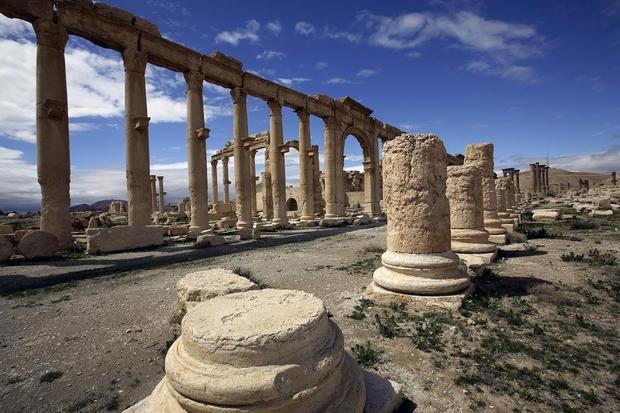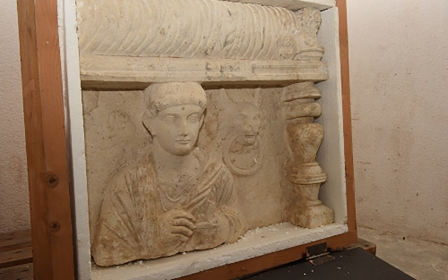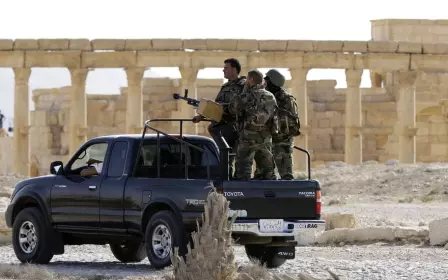Islamic State 'retakes Palmyra' after Syria army withdrawal

The Islamic State (IS) group, which was forced out of Palmyra in March, was reportedly back in control of the Syrian desert city at the second attempt on Sunday, after an initial success was countered by Russian air strikes.
"Despite the ongoing air raids, IS retook all of Palmyra after the Syrian army withdrew south of the city," said the head of the Syrian Observatory for Human Rights, Rami Abdel Rahman.
The militants made a lightning-fast advance across the city after overrunning a northern neighbourhood and capturing the famed citadel to Palmyra's west.
The IS-linked Amaq news agency also reported that IS regained "full control" of the city on Sunday after taking the citadel, which overlooks Palmyra from a strategic hilltop.
IS launched an offensive last week near Palmyra, a renowned UNESCO World Heritage site.
It seized oil and gas fields before making a major push into the desert city on Saturday, sparking new worries for Palmyra's remaining ancient treasures.
But a fierce Russian bombing campaign killed scores of IS militants and forced others to withdraw at dawn on Sunday.
"Intense Russian raids since last night forced IS out of Palmyra, hours after the jihadists retook control of the city," said the Observatory's head.
"The army brought reinforcements into Palmyra last night, and the raids are continuing on jihadist positions around the city," he told AFP.
In a statement issued in Moscow, the defence ministry said Russian warplanes conducted 64 air strikes against "positions, convoys and advancing reserves of militants" in Palmyra.
"Over the past night, Syrian government troops with active support of the Russian air force thwarted all terrorist attacks on Palmyra," it said in a statement.
"The attacking militants actively used car bombs with suicide bombers, armoured vehicles and rocket artillery," it said, adding that the strikes killed more than 300 militants and destroyed 11 tanks and 31 vehicles.
However, a BBC report citing "activists" later on Sunday said that "IS regained control of the city despite being forced from the centre by Russian air strikes".
Russia has carried out a bombing campaign in Syria in support of its ally President Bashar al-Assad since September 2015.
Hit-and-run
IS militants have used hit-and-run tactics to cut their losses of personnel and equipment, withdrawing under intense bombardment but quickly relaunching an attack when skies are clear.
The militants have killed around 100 members of Syrian government forces since launching simultaneous attacks on several government positions near Palmyra on Thursday, the Britain-based Observatory said.
They targeted areas including near the Mahr and Shaar oil and gas fields and seized government checkpoints, silos and the village of Jazal, northwest of Palmyra.
In May last year, the group seized several towns in Homs province including Palmyra, where they caused extensive damage to many of its ancient sites.
They were ousted from Palmyra in March by Syrian government forces backed by Russia.
That was hailed as a major victory, with Russian celebrities travelling there since March staging concerts and making public appearances.
Moscow has been under severe criticism for its air strikes on Aleppo - which it says it stopped on 18 October - where the anti-Assad opposition is currently holed up in just a fraction of the territory it once controlled.
The city's eastern districts are still being bombed by the Syrian government in attacks which Washington has labelled "war crimes," and the UN General Assembly has demanded an immediate ceasefire to stop the carnage.
New MEE newsletter: Jerusalem Dispatch
Sign up to get the latest insights and analysis on Israel-Palestine, alongside Turkey Unpacked and other MEE newsletters
Middle East Eye delivers independent and unrivalled coverage and analysis of the Middle East, North Africa and beyond. To learn more about republishing this content and the associated fees, please fill out this form. More about MEE can be found here.




